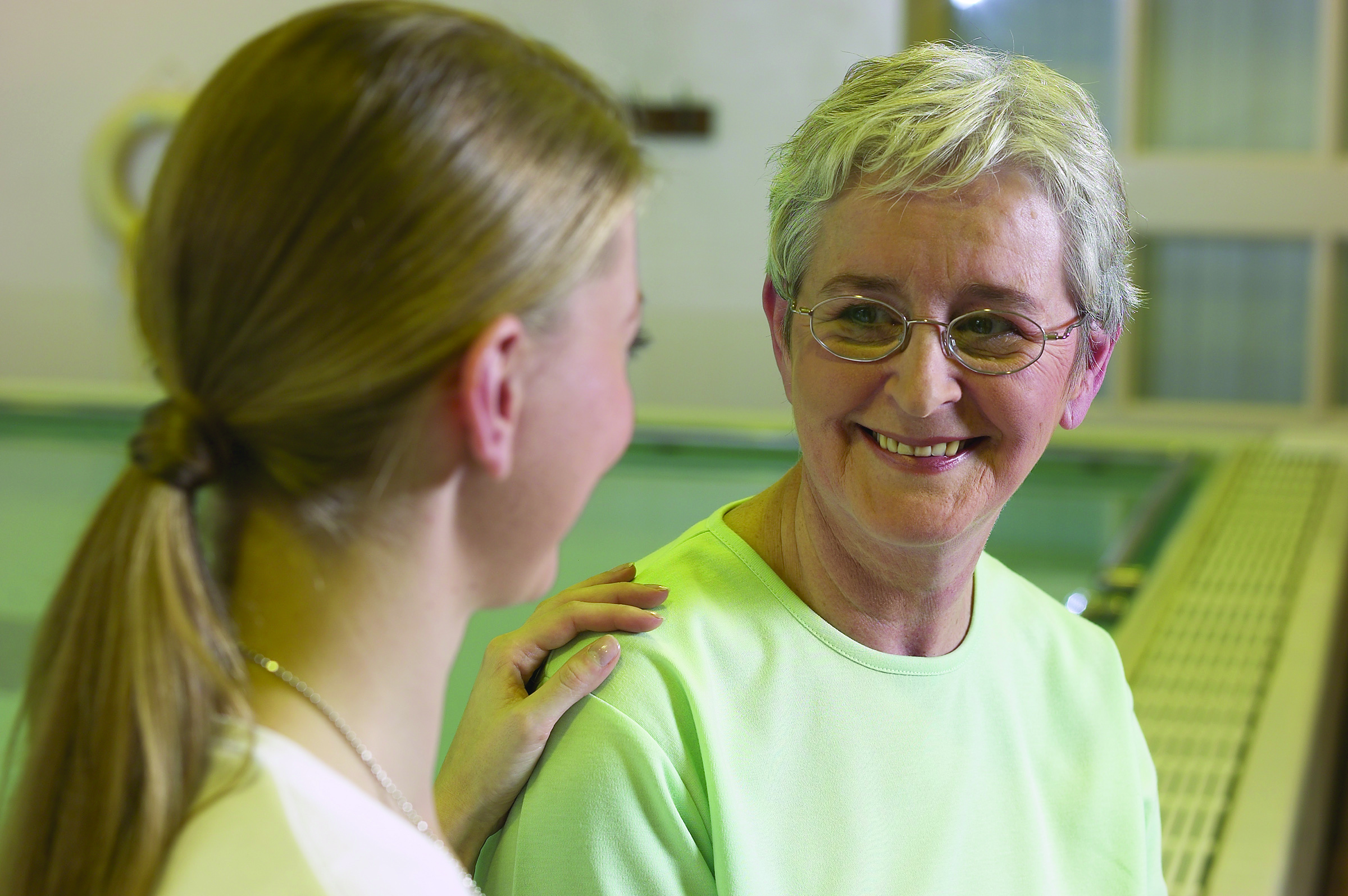
By: Melinda Butler, OTD & Rochelle Francis, MS, OTR/L
As you enter the golden years of life, you may find that you are faced with challenging decisions regarding your healthcare and lifestyle. Like most seniors, you may prefer to maintain your private residence due to the many precious memories you have created there. However, if problems with mobility or activities of daily living prevent you from maintaining an independent lifestyle in your home, there are other living arrangements that will still allow you home-like amenities and yet provide the physical assistance you need to maintain your functional independence, well-being and autonomy.
Many assisted living and skilled nursing facilities offer wellness or restorative programs to allow residents an opportunity to participate in customized exercise plans and activities of daily living programs that are designed to help residents achieve and maintain the highest possible level of independence. Restorative Nursing is designed to meet the physical, mental and psychological needs of residents. These services are typically provided by Restorative Nursing Assistants/aides or other staff members who have been trained to carry out restorative interventions. Restorative aides work under the supervision of a registered nurse who monitors the resident’s progress on interventions that are designed to meet specific goals. The basic restorative nursing categories from which programs are developed include:
1. Active and Passive Range of Motion
2. Splinting or Bracing
3. Amputation/ Prosthesis Management
4. Bladder Training or Bladder Training
5. Bed mobility
6. Transfer Training
7. Dressing or grooming
8. Walking
9. Eating or Swallowing
10. Communication
Restorative programs are often established by Physical, Occupational and Speech Therapists and may commence after a skilled therapy episode. Since skilled therapy services are billed to Medicare and other insurance companies, the services can most often only be provided under the following circumstances: 1) an acute change in function related to a medical onset, and 2) significant functional progress in a reasonable time frame is achievable. Therefore, if you have the potential to improve your overall function but you do not meet the requirements for reimbursement of therapy services through Medicare or other insurance providers, you may be an ideal candidate for restorative nursing services.
For example: Mr. Walker is a resident of a skilled nursing facility who underwent a total hip replacement following a hip fracture. He began physical therapy services for strengthening and ambulation (walking). He has no other major health problems besides arthritis. After four weeks of therapy, he was able to walk 150 feet with a rolling walker. This is a functional distance for Mr. Walker because it is the distance required to walk from his bed to the bathroom. Therefore, his therapist prepared to discharge physical therapy services.
However, Mr. Walker told his therapist that he would like to be able to walk 400 feet; which is the distance from his room to the activity room where bingo is held. This would require increased endurance. Although this is a reasonable goal, it may not be covered by Mr. Walker’s insurance because basic endurance training is not considered a skill that requires a therapist. Therefore, the physical therapist implemented a restorative nursing program for walking with a goal to increase walking distance from 150 feet to 400 feet. After about 3 weeks of working with the restorative aide, Mr. Walker was able to walk to bingo without becoming fatigued.
If you should ever need skilled nursing services, keep in mind that the goal of these facilities is to assure that you achieve and maintain the highest possible level of independence. Restorative nursing is one of the many programs designed to do just that. So be sure to ask your therapist how you can start receiving this valuable service to help you restore function and restore life.
Resnick, Barbara. Restorative care nursing for older adults: A guide for all care settings. New York: Springer Publishing Company, Inc., 2004. Print.



